
Coronavirus outbreak
What else happened as coronavirus swept the globe
The reports that would have been the biggest in the world if Covid-19 had never emerged
by Michael SafiWhat if it had just fizzled out? What if leading Chinese scientist Zhong Nanshan had gone on state television on 20 January and delivered news that the unusual virus detected in Wuhan was not spreading between people, instead of what he really said that night: that human-to-human transmission was certain? The infection might have been traced to animal carcasses piled in a seafood market’s lanes, and after they were destroyed – and experts issued their usual warnings that a more serious outbreak was inevitable – the coronavirus story might have ended.
What would we be talking about instead? What stories would have defined 2020 so far? Even before the worst pandemic in a century, tectonic shifts were already under way. The news felt exhausting. But the world is still turning, despite the movements of half of humanity being restricted in some way. Even apart from Covid-19, it has been a year of significant developments.
Iran after Qassem Suleimani
In the middle of the night in Baghdad, on 3 January, a US drone fired the most consequential shot in the Middle East in a generation, killing 10 people including Qassem Suleimani, leader of the expeditionary force of Iran’s Revolution Guards.
The 62-year-old general had been a thorn in the side of the American-led occupation of Iraq, overseeing the Islamic republic’s campaign in Syria and nurturing proxies that turned Iran into a regional player. He was thought to be untouchable. Donald Trump marked his killing with a wordless tweet of a grainy American flag.
The chaotic days following the killing involved a deadly crush at one of the general’s public funerals, Iran’s first ever missile strikes on US troops, the accidental shooting down of a passenger jet over Tehran – killing all 176 aboard – and an outburst of anti-regime protests in Iranian cities.
The reverberations may be felt for years: nearly all the regional projects Suleimani was overseeing when he died have faltered, the Observer reported this month, and the al-Quds force is struggling to manage its network of proxies without his giant presence.
The other plague
The largest swarms of locusts in decades have descended on farms in parts of Africa, south Asia and the Arabian peninsula this year, posing “an extremely alarming and unprecedented threat to food security and livelihoods”, according to the UN.
The pests form vast, destructive clouds that can travel about 55 miles (90km) in 24 hours. A swarm about a square kilometre large can consume the same quantity of food in a day as 35,000 people. The risk of second waves is said to still be critical, including in Yemen, where food security is already dire amid the ongoing civil war.
Riots in Delhi
Hostility towards Indian Muslims has crept further into the Indian mainstream in the past five years since the country’s Hindu nationalist prime minister, Narendra Modi, was elected. In February, it boiled over during a state visit by Donald Trump, culminating in the country’s worst religious violence in decades.
The catalyst was widely acknowledged to be a ruling party leader, Kapil Mishra, who on 23 February issued a public ultimatum that if the police did not clear the streets of mostly Muslim protesters, his supporters would be “forced to hit the streets”.
At least 50 were killed in the ensuing violence between Hindu and Muslim mobs, amid allegations that the Delhi police stood back to allow Hindus to commit violence while beating to death some of the Muslim men in their custody.
The riots and killings contributed to growing unease about the kind of India that may emerge from Modi’s years in power.
The US retreats from its longest war
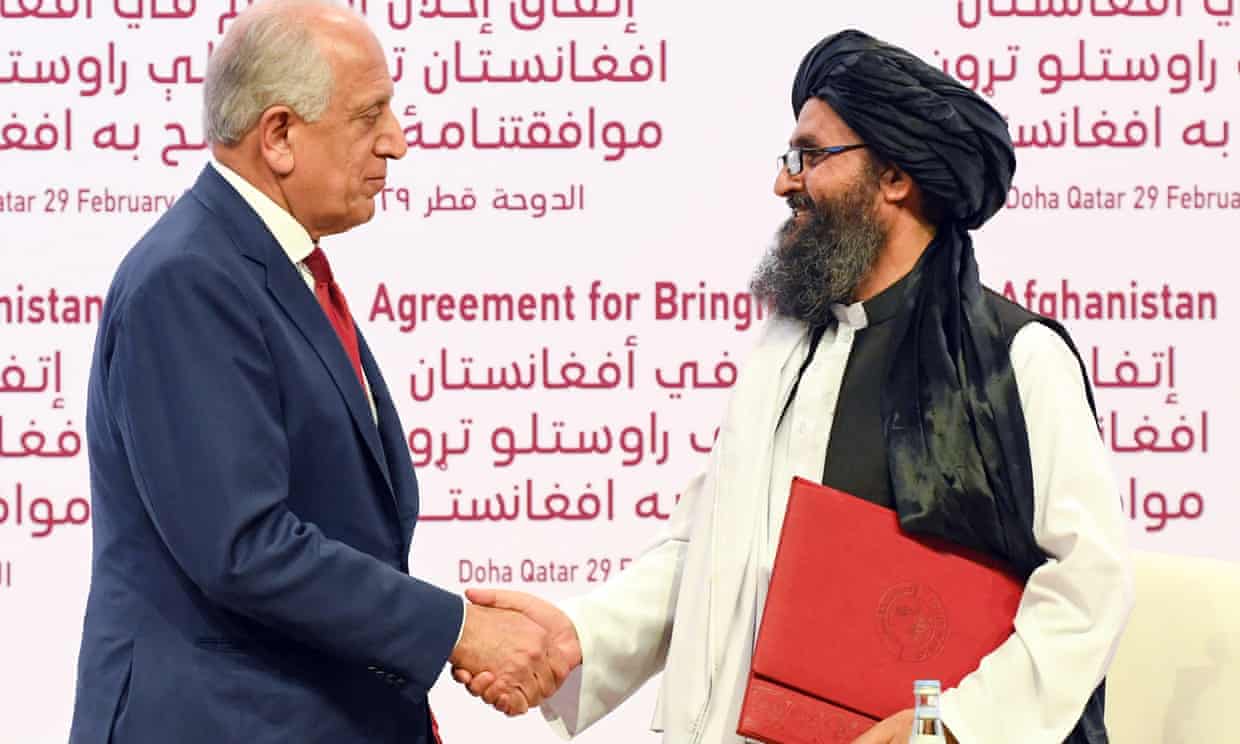
After nearly 19 years, more than 43,000 civilian casualties and three US presidents, the Trump administration signed a peace deal with the Taliban on a Saturday afternoon in late February.
It was a good deal for the Taliban: they managed to exclude elected officials in Kabul and deal with the Americans directly. On paper, US troops could be gone from the country by spring 2021. The Taliban have promised to sit down with their Afghan government counterparts and make a separate peace deal later, but there is no guarantee they will do so, and their attacks on the Afghan army and police continue.
The US says the ongoing violence means their troops may stay, but it is clear, not least to the Taliban, that Washington is desperate to get out of the war.
It’s Biden
For a few days after Bernie Sanders swept the Las Vegas Democratic primary, it appeared that a self-described “democratic socialist” was going to win the nomination of a major American party. Instead, the Democratic establishment rallied behind former vice-president Joe Biden, the campaign’s standard-bearer for the liberalism of the Obama and Clinton eras.
Biden cleaned up on Super Tuesday and soon after clinched the nomination, but there was no victory tour, nor conciliatory rallies with his opponents. Instead, the 77-year-old appeared to vanish from view as the scale of the coronavirus emergency finally broke through to policymakers and the public. He is currently campaigning from the basement of his Delaware home.
Antarctica’s longest heatwave ever
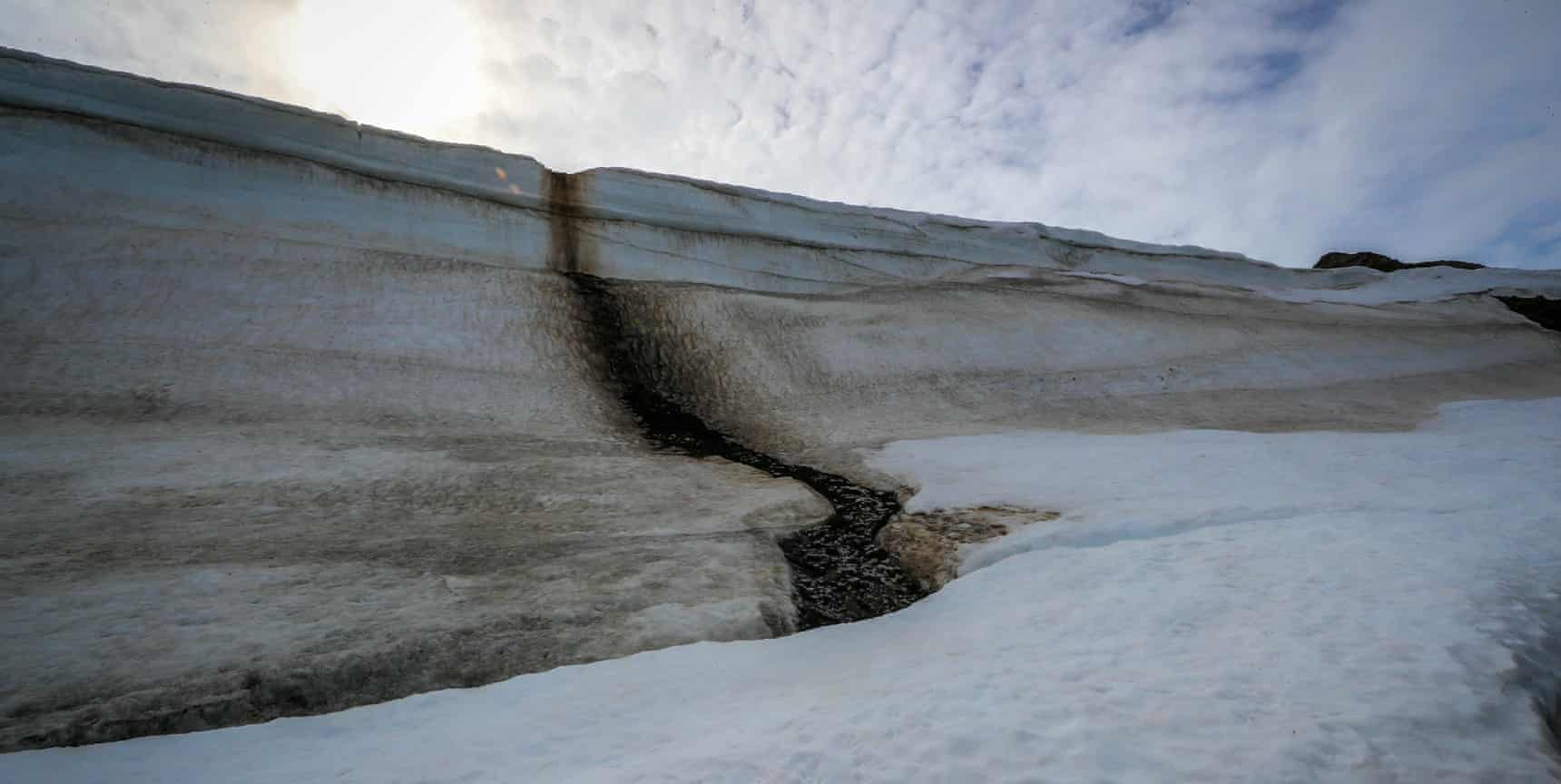
On 6 February, an Argentine weather station on Antarctica’s northern tip recorded a temperature of 18.4C (65.1F) – roughly the same as Los Angeles that day, Nasa noted.
It was part of the longest stretch of warm weather ever recorded on the continent, a nine-day heatwave that melted 20% of one island’s snow cover. “I haven’t seen melt ponds develop this quickly in Antarctica,” Mauri Pelto, a glaciologist at Nichols College, told Nasa’s Earth Observatory. “You see these kinds of melt events in Alaska and Greenland, but not usually in Antarctica.”
The freak temperatures were attributed to the confluence of warmer than average sea surfaces, a high pressure system over South America and a warming phenomenon known as the foehn effect.
They come against a backdrop of another looming crisis: an almost 3C temperature increase on the Antarctic peninsula over the past 50 years, part of a pattern of unusual weather events associated with global heating, including Australia’s catastrophic bushfire season.
Sudan bans FGM
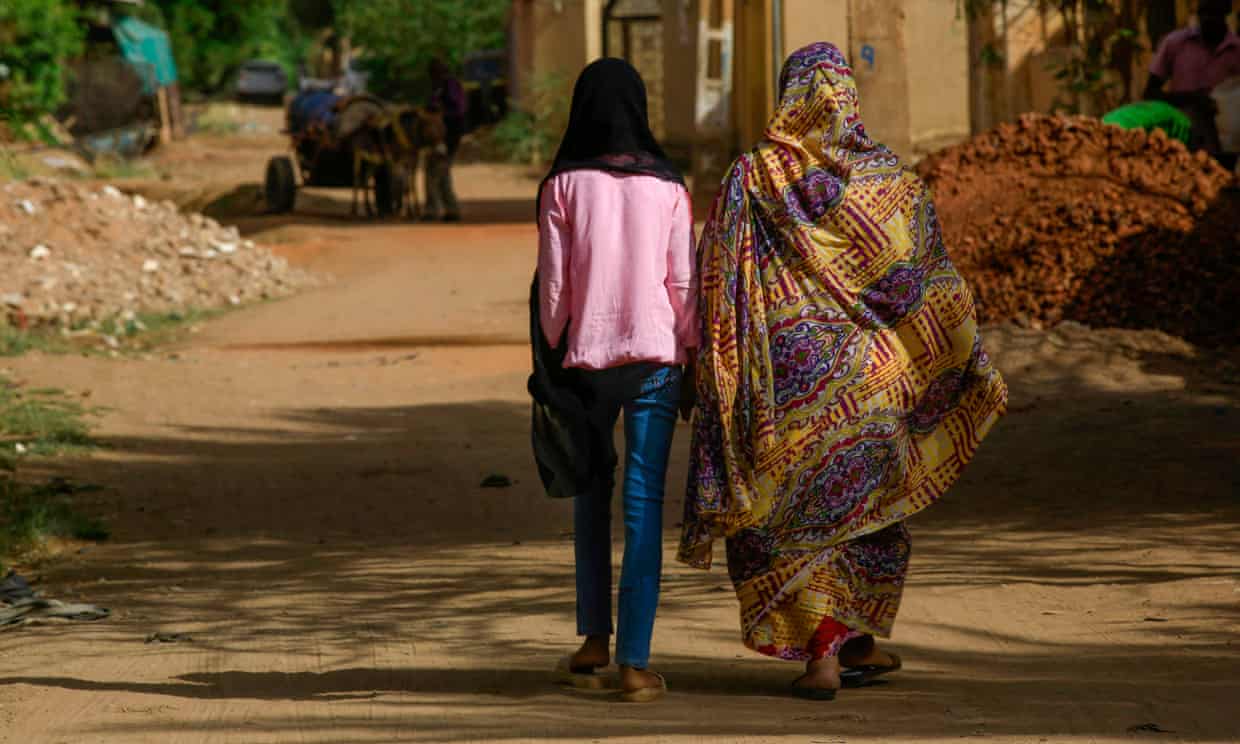
A legislative change in Sudan could improve the lives of millions of women. About 87% of girls and women in the country have undergone female genital mutilation (FGM), according to the UN. Most are cut between the ages of five and 14.
Campaigners in April hailed the passage of a new law that makes the practice punishable by up to three years in prison, but were sober about its impact. The practice is entrenched in Sudanese culture and will take time to be eradicated entirely. “There is so much work to be done. This is a start, a good start,” Fatma Naib, a Unicef communication officer in Sudan, told the Guardian.
An alleged genocidaire in custody

A dawn raid in a Paris suburb in May snared one of the world’s most wanted men. Félicien Kabuga, a wealthy Rwandan businessman, is accused of creating and funding the notorious Interahamwe militia that carried out the 1994 killings of about 800,000 people in less than three months.
His radio station, the Radio-Télévision Libre des Mille Collines, allegedly helped lay the groundwork for the genocide with its relentless dehumanisation of the Tutsi population. “You have missed some of the enemies,” it said in one notorious broadcast during the killings. “You must go back there and finish them off. The graves are not yet full.”
A 2003 attempt to capture Kabuga in Nairobi ended with the mysterious death of the man who was supposed to give up his location. French police said the 84-year-old had also spent time in Germany, Belgium and Switzerland.
He is yet to enter a plea in a French or international court, but his lawyers said last week that he had the right to be presumed innocent.
Ahmaud Arbery

The fatal shooting of Ahmaud Arbery, a 26-year-old African American, as he jogged in a coastal city in the US state of Georgia in February, initially received little national attention. The two men accused of killing him claimed they did so in self-defence. Police and prosecutors showed little enthusiasm for pursuing the case.
That changed with the 5 May release of a video depicting Arbery’s last moments. The man is trailed slowly by a car as he jogs on quiet street. He reaches another vehicle and two armed men appear. A struggle ensues with one and several gunshots go off. The last scene shows Arbery dying in the street.
The shocking footage led to the arrest of the three men present at the shooting, and has rekindled popular rage at the dangers black men can face in predominantly white communities, and the impunity and inaction that regularly follows their deaths.
The end of the two-state solution?
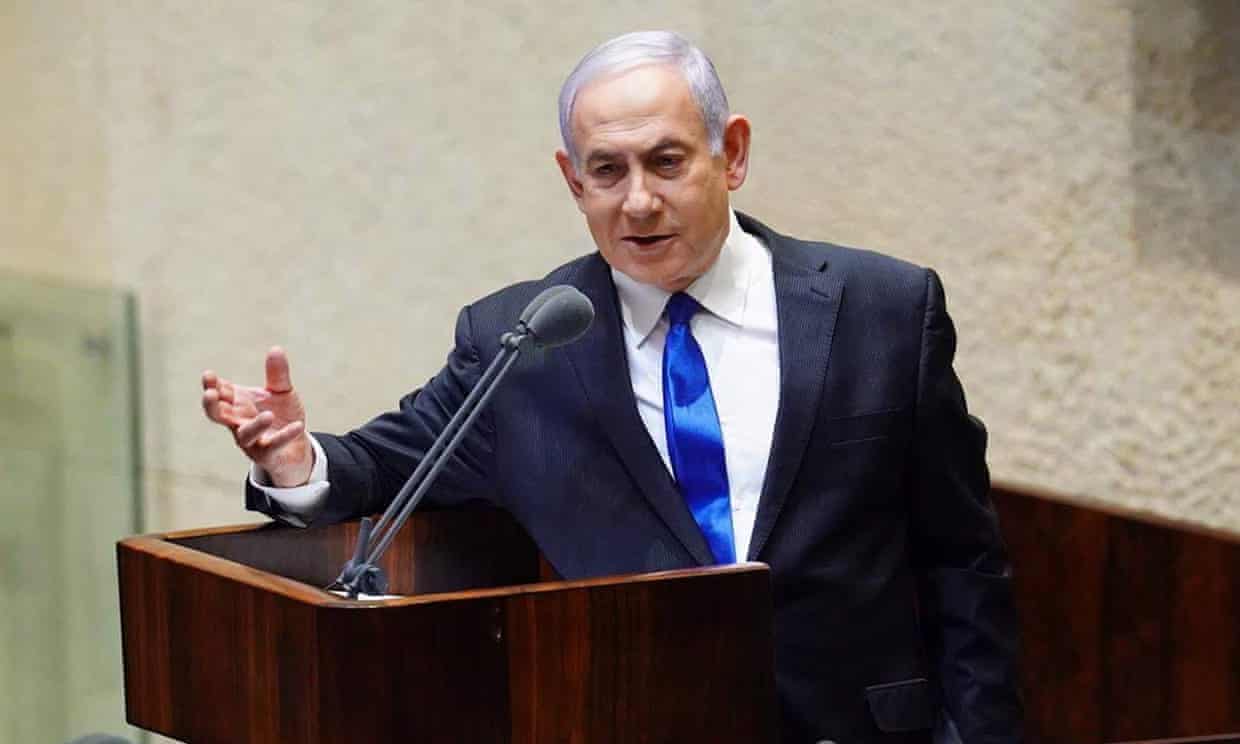
Once a fringe notion espoused by Israel’s far right, the idea the Jewish state would simply declare swaths of the Palestinian territories – where its settlements have been proliferating for decades – its own territory has over the past year marched into the mainstream.
It may soon become Israeli law. The new governing alliance of Benjamin Netanyahu and his former election rival Benny Gantz, plans to advance legislation in the next few months aimed at eventually declaring about 30% of the occupied West Bank to be Israeli territory, in line with the “peace plan” released by Trump in January – and roundly rejected by Palestinian leaders.
The Trump plan calls for the annexation to take place in consultation with Palestinian leaders, but it is unclear what conditions – if any – the White House would impose on the Netanyahu-Gantz government. The annexation was “an Israeli decision”, Mike Pompeo said recently.
European leaders, the UN and scores of retired Israeli generals and security officials have voiced their objection to the plan, arguing that it would isolate Israel and pour petrol on the volatile region. It would also signal the death of the two-state solution, the 1994 outline for peace between the Israelis and Palestinians that has been the framework for all subsequent negotiations, but which many analysts argue has been on its deathbed for years.
Other stories from this year
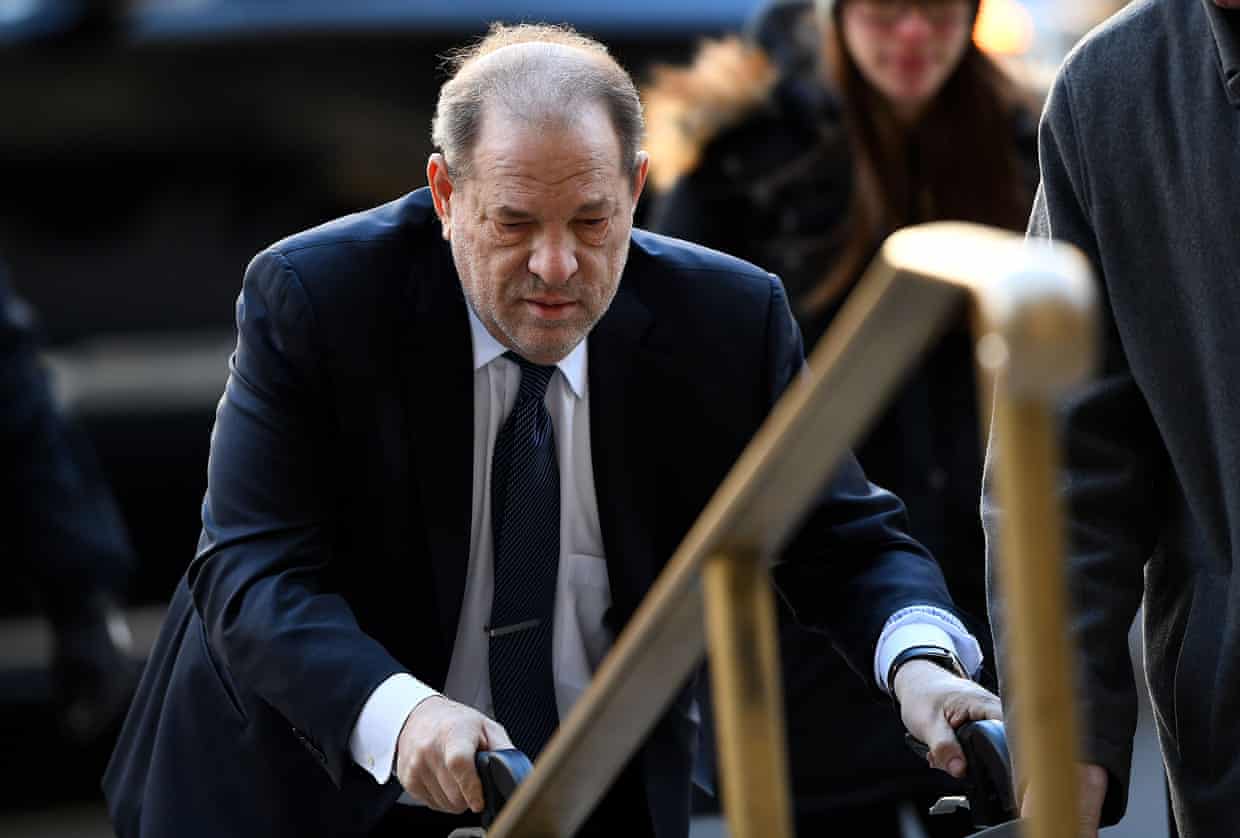
- Movie mogul Harvey Weinstein was convicted of sexual assault in a landmark trial.
- Amazon boss Jeff Bezos’s phone was hacked after he received a WhatsApp message sent by the Saudi crown prince, Mohammed Bin Salman, according to digital forensics experts.
- A man described as “Britain’s most prolific rapist” was convicted in January. The court heard that Reynhard Sinaga may have assaulted at least 159 men over several years by luring them to his house and drugging them.
- Warring leaders in the world’s newest country, South Sudan, signed a fragile peace deal in February.
- The UK formally left the European Union on 31 January.